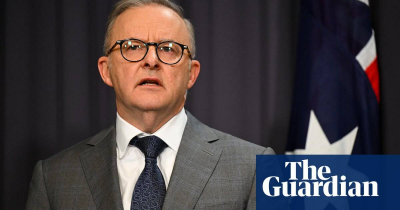The Guardian - China-Albanese to raise human rights and trade with Xi in first China visit by Australian PM since 2016
November 2, 2023 4 min 805 words
安东尼·阿尔班斯计划前往中国进行首次正式访问,这是他担任澳大利亚总理期间的一次重要外交尝试。此次访问计划与1973年前总理戈夫·惠特拉姆首次访华50周年相符。他将与习近平会面,期间将提及人权、贸易以及澳大利亚对南海军事化的担忧。此外,他还计划提及在中国被拘留了四年多的澳大利亚作家杨恒均,并呼吁中国政府再次允许澳大利亚记者在中国内地进行报道。 这次访问标志着澳大利亚已经走出了外交冷冻期,这是阿尔班斯总理任内的一个重要且敏感的外交尝试。在外交争端期间,澳大利亚最近成功争取了记者程蕾的释放,并中国也已经解除了对澳大利亚出口产品的惩罚性贸易制裁。 澳大利亚和中国的关系正在逐渐缓和,但官员们强调,澳中双边关系已经不同于2016年。这次访问的意图是稳定对澳大利亚非常重要的关系,同时维护地区的稳定与安全。 阿尔班斯总理表示,澳大利亚希望在合作的领域寻求合作,必要时保持分歧。他强调,当前重新接触澳大利亚最重要的贸易伙伴中国的外交策略是“耐心、协调和谨慎”。 在此次访问期间,澳大利亚相信中国可能会寻求加入CPTPP等地区性贸易协定。然而,澳大利亚官员强调,目前澳大利亚的关注点是巩固CPTPP,而不是批准新成员的申请。中国要加入CPTPP需要现有成员的一致同意,而日本强烈反对批准中国的加入。 总的来说,这次访问具有重要的外交意义,标志着澳大利亚和中国之间的关系正在逐渐改善,但在复杂的地区和全球政治背景下,稳定和谨慎仍然是关键。
Anthony Albanese will raise human rights, trade and Australia’s concerns about the militarisation of the South China Sea when he meets Xi Jinping in Beijing on Monday during the first visit to China by an Australian prime minister since 2016.
Albanese has signalled he intends to raise the plight of the Australian writer Yang Hengjun, who has been detained for more than four years in China. Ahead of his departure, the prime minister also called on the Chinese government to issue visas to Australian journalists, allowing them to report once again from the mainland.
Albanese will kick off his official program on Sunday in Shanghai at the sixth China International Import Expo before travelling to the Chinese capital to meet the president, the premier, Li Qiang, and the chair of the National People’s Congress, Zhao Leji. Albanese will be hosted by the premier and will be received for his meetings with China’s leaders on Monday and Tuesday in Beijing’s Great Hall of the People.
The looming visit – one of the more important and delicate diplomatic forays of Albanese’s prime ministership – signals Australia has emerged from the diplomatic deep freeze. The visit is timed to coincide with the 50th anniversary of the first visit to China by then Labor prime minister Gough Whitlam in 1973.
As a prelude to the trip, Australia has recently secured the release of the journalist Cheng Lei, and China has stepped back from punitive trade sanctions imposed at the height of the war of words with Canberra which began when the Chinese telco Huawei was barred from Australia’s 5G rollout in 2018 and intensified dramatically after Scott Morrison called for an independent inquiry into the origins of Covid-19 in 2020.
While a thaw is under way, Australian officials stress the bilateral relationship between Canberra and Beijing is not the same as it was in 2016.
One official told journalists the rapprochement that has unfolded over the past 12 months was not a “journey back to the future”. The intention was to stabilise a relationship that is “extremely important to Australia” while dealing with China in a manner consistent with regional stability and security.
Albanese said on Thursday that Australia wanted to look for areas “where we can cooperate when we can, and disagree where we must”. The prime minister said Australia’s diplomatic strategy during the current re-engagement with Australia’s most significant trading partner was “patient, calibrated and deliberate”.
Australia believes that during the visit China will request Australia’s support for it to join the big regional trade deal known as the CPTPP.
The Labor government – and the Coalition government before it – repeatedly stressed that the CPTPP had high standards and any new entrant would need to meet those high standards. This coded language meant China was unlikely to pass the test, particularly while trade sanctions against Australian export products remained in place.
after newsletter promotion
Unsourced reports in recent months have indicated that the Australian government might be prepared to soften that position, although this has previously been denied.
Entry of a new member to the CPTPP – which now has 12 members, given the UK recently joined – requires unanimous support of existing members. If Australia were to drop any rhetorical opposition to China’s entry as a pragmatic step, it would still be unlikely to be approved given that Japan is strongly opposed to signing off on it.
Australia’s trade minister, Don Farrell, said after his meeting with China’s commerce minister, Wang Wentao, in May: “I reiterated that any economy that sought to accede to the CPTPP must have a demonstrated track record of complying with trade agreements. I also indicated that Australia would work with the CPTPP membership to consider all accession applications on a consensus basis.”
Australian officials say Australia’s current “focus” is on “bedding down” the CPTPP with its existing members. While not categorically ruling out a rethink, an official said Australia’s position on the matter remained “as has already been articulated”.
Albanese’s visit to China follows an official visit to Washington last week. The president of the United States, Joe Biden, will also meet China’s president in coming weeks. Strategic competition between the US, Australia’s most important security partner, and China, our biggest trading partner, has destabilised the Indo-Pacific.
Albanese welcomed the looming meeting between Biden and Xi at the Apec conference. Dialogue between the superpowers was “a good thing”, Australia’s prime minister said.

